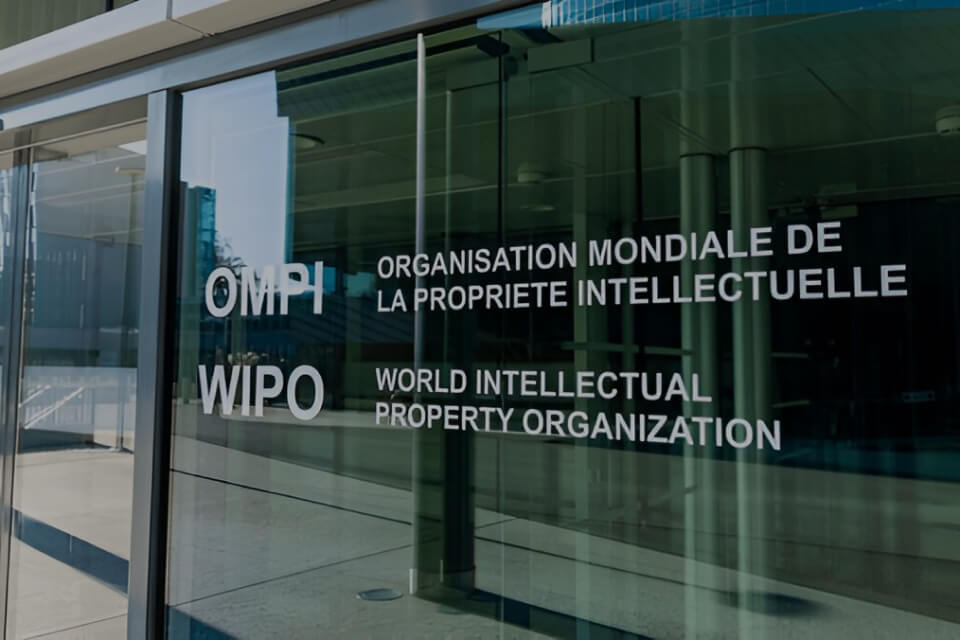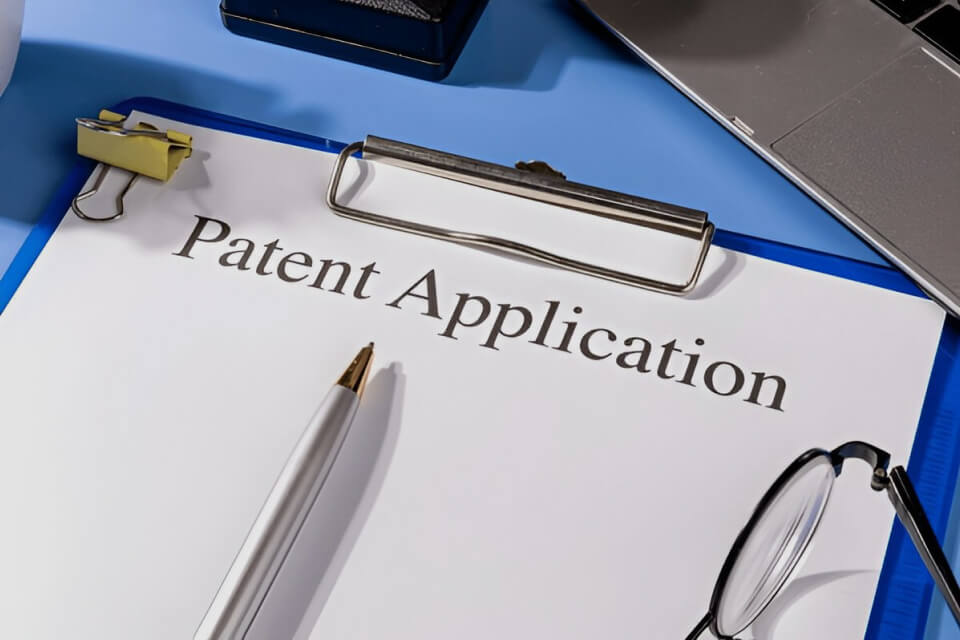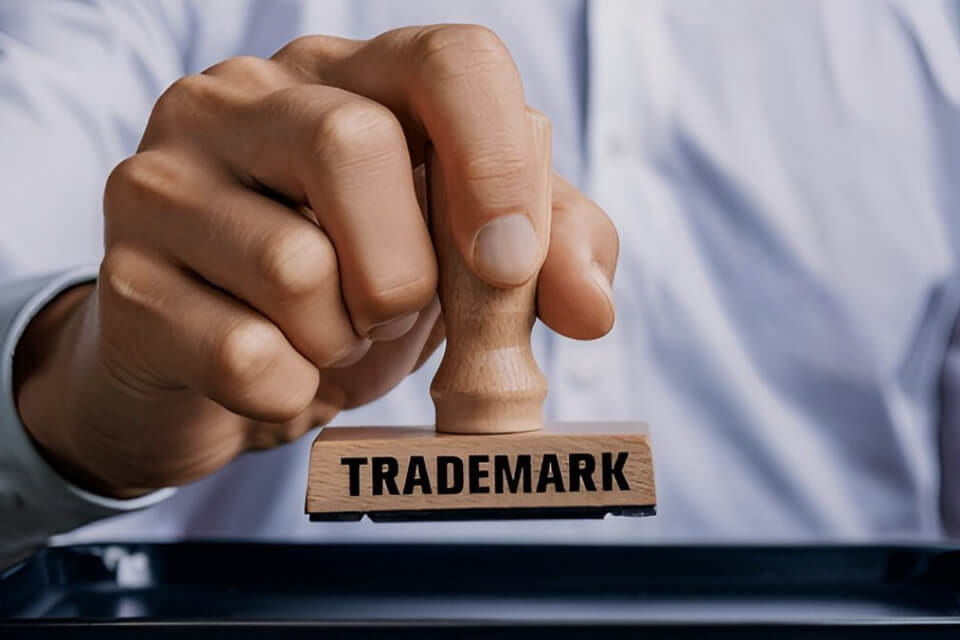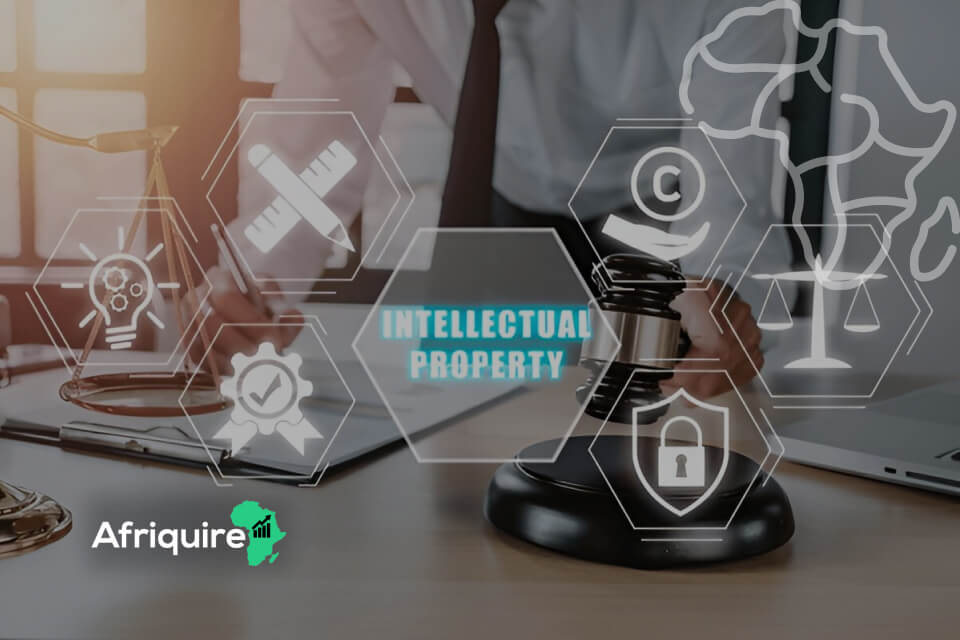Introduction
Knowing how to protect your intellectual property is one of the most important decisions every African entrepreneur must make, especially in today’s fast-changing business world. With more African startups doing great things in technology, farming, and the creative industries, it’s now more important than ever to secure your unique ideas, products, and brand. Intellectual property (IP) protection helps you stand out in the market, attract investors, and even prepare your business for global growth.
However, there are still many challenges to IP protection in Africa, such as high costs, slow legal systems, and little awareness among business owners. Even with these problems, learning how to protect your intellectual property is key to growing your business and staying ahead of copycats. So, the big question is: is your great idea safe enough to take off?
Understanding Intellectual Property and Its Importance for African Entrepreneurs
Intellectual property (IP) means creations of the mind. This refers to things like inventions, business names, logos, software, music, and artworks. For African entrepreneurs, protecting these things means you can stop others from copying your products, stealing your brand, or using your ideas without your permission.
IP rights give you full control, allowing you to make money, license your products, and grow your business value. In Africa, there are national laws and regional groups like ARIPO (African Regional Intellectual Property Organization) and OAPI (Africaine de la Propriété Intellectuelle [African Intellectual Property Organization]) that help you register, protect, and enforce your IP in different countries.
Knowing your rights and learning how to protect your intellectual property is more important now as Africa’s digital economy expands and more businesses move online. With the growing push for trade and innovation, protecting your intellectual property is not only smart, it’s necessary for your business to last long and succeed.
Types of Intellectual Property Protection
Protecting your ideas and creations is very important if you want to succeed in business. In Africa, knowing how to protect your intellectual property (IP) helps you keep your inventions, brand, and creative works safe from copying or misuse. Here, we explain the main types of intellectual property protection and how you can use them.
Patents and Inventions
What Can Be Patented and the Application Process
A patent protects new inventions or improvements to existing products or processes. If you create something unique like a new farming tool, machine, or chemical formula, you can apply for a patent. This patent gives you the legal right to stop others from making, selling, or using your invention without your permission. It normally lasts for 20 years.
To get a patent, you need to file an application with your country’s intellectual property office or regional bodies like ARIPO or OAPI. The process involves showing that your invention is new, useful, and not obvious. Although it can take time and money, it is worth it because it helps you protect your hard work and innovation.
Trademarks and Brand Identity
Registering Business Names, Logos, and Slogans
A trademark is a sign that helps people recognise your business. It can be your company name, logo, slogan, or even a colour. Registering your trademark stops other people from using similar signs that might confuse your customers.
You can register your trademark with your national IP office or through regional organisations. Doing this helps build trust in your brand and allows people to easily identify your products or services. Over time, your trademark becomes part of your business identity and gives you a strong reputation.
Copyright for Creative Works
Protecting Written, Visual, and Digital Content
Copyright protects original works of authorship such as books, music, films, software, and visual art. In Africa, once you create something original and fix it in a tangible form—like writing it down or recording it—you automatically own the copyright. However, registering your copyright with the national IP office strengthens your legal position and makes it easier to prove ownership if someone copies your work.
Copyright gives you the exclusive right to reproduce, distribute, perform, or display your creation, and to earn income from it. For digital creators, this protection is especially important in today’s online world where content can be easily copied and shared.
Trade Secrets and Confidential Information
How to Maintain Secrecy and Legal Protection
Trade secrets are valuable business information that gives your business an advantage and is not known to the public. Examples include recipes, formulas, and customer lists. You don’t need to register trade secrets; you only need to keep them safe.
To protect them, use confidentiality agreements like Non-Disclosure Agreements (NDAs) when you share information with employees or partners. Always make sure only trusted people can access these secrets. Once a secret is exposed, its value can be lost forever, so you must take it seriously.
Protecting your intellectual property is a key step in building and growing your business. Understanding these types of IP rights helps you choose which fits your needs best and prevents many future problems.

6 Steps to Secure Intellectual Property in Africa
Many young entrepreneurs in Africa have great ideas, but without protection, someone else can easily copy or steal them. Understanding how to protect your intellectual property (IP) might look confusing at first, but if you follow some simple steps, you can secure your rights and keep your creations safe. Here’s a clear guide to help you protect your intellectual property in Africa.
1. Conducting Prior Research and IP Searches
Before you file any application to protect your idea or creation, you need to do proper research. This means checking if your invention, brand name, or design already belongs to someone else. Doing this helps you avoid legal problems or rejection later. You can search online through official websites or pay experts who know how the local IP systems work. This step is very important because it gives you confidence that your idea is original. Also, it helps you build a stronger case when applying for your intellectual property rights.
2. Registering with National and Regional IP Offices
In Africa, where you want your protection to apply matters a lot. You can register in one country through its national IP office, or you can register regionally to cover several countries at once. Registering gives you legal rights, which means no one can use or copy your work without your permission.
3. African Regional Intellectual Property Organization (ARIPO)
ARIPO helps 19 mainly English-speaking African countries in East and Southern Africa. Instead of registering in every country one by one, ARIPO allows you to file just one application that covers all member countries. This saves you both time and money. ARIPO mainly protects patents, trademarks, and industrial designs.
4. Organisation Africaine de la Propriété Intellectuelle (OAPI)
OAPI, on the other hand, serves 17 mainly French-speaking African countries in West and Central Africa. It works differently from ARIPO because one registration automatically covers all member states. This makes the process easier and faster. OAPI also protects patents, trademarks, and designs.
5. Filing for International Protection under WIPO
If your dream is to expand your business outside Africa, you can protect your intellectual property globally through the World Intellectual Property Organization (WIPO). WIPO offers systems like the Patent Cooperation Treaty (PCT) and the Madrid Protocol for trademarks. These allow you to submit one international application that covers many countries at once. This step helps African inventors and entrepreneurs protect their rights worldwide as their businesses grow.
6. Renewing and Maintaining IP Registrations
After you have registered your intellectual property, your work is not yet done. You must make sure your rights remain active. This means paying renewal fees and submitting any required documents on time to the IP offices. If you fail to renew your registration, you can lose your rights, and other people may freely copy your work. Therefore, always keep track of your renewal dates and costs. Managing your intellectual property well helps you keep long-term control over your creation.
Protecting your intellectual property is an investment in your future and Africa’s future. By taking these steps, researching first, registering properly, thinking globally, and maintaining your rights, you help build a stronger culture of innovation across the continent.
Common Mistakes to Avoid
Protecting your intellectual property (IP) in Africa is very important if you want to keep your ideas, brands, and inventions safe. Sadly, many businesses and young innovators make mistakes that put their IP at risk. Here, we explain some common errors and how to avoid them while learning how to protect your intellectual property.
Delaying Registration Until After Launch
One big mistake is waiting too long to register your IP. Many people believe they can start their business first and sort out protection later. But that thinking is risky because, without registration, anyone can copy your idea or brand. In Africa, your IP rights only protect you in countries where you have registered them.
So, delaying gives others the chance to claim your idea before you do. The best thing to do is to register your key IP early, even before you launch your product. That way, your rights are safe and you avoid future legal trouble. Think of protection like a locked door: you should lock it before inviting guests inside
Failing to Protect IP Across Multiple Markets
Africa is not one country but a group of many countries, each with its own IP laws. Protecting your intellectual property in only one country is risky if you hope to sell or expand across Africa. For example, registering your trademark in Nigeria alone does not stop someone in Kenya or South Africa from using it.
Thankfully, regional systems such as ARIPO (African Regional Intellectual Property Organization) and OAPI (Organisation Africaine de la Propriété Intellectuelle) allow you to register IP in several countries at once. Using these systems saves time, reduces cost, and keeps your rights safe in many places. So, always plan your protection with the future in mind.
Ignoring Digital and Online Protection
Nowadays, much of business happens online. Sadly, many innovators forget that their online work also needs IP protection. For instance, your website name, online content, apps, and digital products can all be stolen if not protected. If you ignore online IP protection, others may copy your work, hurt your reputation, or steal your profit.
To prevent this, register domain names that match your brand, protect your digital content with copyright, and monitor your brand on social media. Also, learn the rules of online platforms to understand how they handle IP rights. Protecting your digital space is just as important as protecting your physical product, especially in Africa’s growing online market.
Protecting intellectual property in Africa comes with both challenges and chances. To avoid common mistakes, start your registration early, protect your IP in all important markets, and secure your online work.

Leveraging IP for Business Growth
Protecting your intellectual property (IP) is not just about stopping people from copying your ideas or inventions. In Africa, knowing how to protect your intellectual property can help you grow your business in many ways. With proper protection, you can attract investors, build strong partnerships, and even make extra money through licensing and franchising.
Licensing and Franchising Opportunities
One smart way to grow your business using your IP is through licensing and franchising. Licensing means allowing another company to use your invention, design, trademark, or creative work in exchange for payment. Franchising, on the other hand, lets someone use your brand name and business model while you earn fees or royalties. Both options help your business grow faster because you don’t need to spend money on new locations or equipment.
For African entrepreneurs, this is a big opportunity. For example, if you own a small bakery in Lagos, you can franchise your brand to someone in Accra or Nairobi. They will use your recipes, logo, and name, while you earn money and your brand spreads to new markets. In this way, you can expand your business across Africa without giving up ownership.
Using IP to Attract Investors and Partnerships
Investors love businesses with strong and protected ideas. When your IP is registered, it shows that your products and services are unique and valuable. This reduces the risk of copycats and increases your business’s market advantage. For instance, if you have a registered patent or trademark, investors will see your company as more trustworthy and ready for growth.
Also, when you manage your IP properly, partnerships become easier. Everyone involved knows exactly who owns what, and that reduces future conflicts. Because of this, a well-protected IP can help you get funding, form alliances, and even reach global markets faster.
Enforcing IP Rights Against Infringement
Sadly, in many parts of Africa, people still face challenges when protecting their IP. Infringement happens when someone copies or uses your IP without permission. To stop this, you may need to take legal action, such as sending a cease and desist letter or going to court. Even though some legal systems in Africa can be slow, there are organisations that help.
For example, the African Regional Intellectual Property Organization (ARIPO) and the Organisation Africaine de la Propriété Intellectuelle (OAPI) work to protect IP across many African countries. It is very important to register your IP early and get help from legal experts who understand local laws. Also, keep an eye on the market so you can act fast if someone tries to copy your work.
Resources and Support for IP Protection in Africa
Protecting your intellectual property (IP) in Africa is very important if you want to keep your ideas, inventions, or brand safe from being copied. Luckily, there are many resources and support systems across the continent that can help you do this. Knowing these options can help you take the right steps to protect your work and stop others from stealing or using it without permission.
Local IP Offices and Legal Assistance
Every African country has its own local Intellectual Property Office where you can register your patents, trademarks, copyrights, and designs. These offices handle the official process and give you legal protection in that country. For example, Nigeria has the Trademarks, Patents and Designs Registry, while South Africa has the Companies and Intellectual Property Commission (CIPC). It’s very important to register your IP with these offices because your rights are only valid in the countries where you register them.
Besides registration, many African countries also have lawyers and legal firms that specialise in IP law. Working with an experienced IP lawyer can help you understand local rules, fill your forms correctly, and guide you if there’s a dispute. Legal help is especially important because protecting IP can be complicated. You might need to stop others from copying your work or fight to prove that you own it.
Government and Private Sector Initiatives
Many African governments are now creating programmes to help people and businesses protect their IP rights. For example, two big regional organisations, the African Regional Intellectual Property Organization (ARIPO) and the Organisation Africaine de la Propriété Intellectuelle (OAPI), allow you to register your IP across many member countries at once. This saves both time and money.
Private organisations and NGOs also support small businesses and startups that want to protect their innovations but don’t have big budgets. Some of them offer training, funding, or advice to help you understand how to secure your IP. Protecting your IP can also make your business more valuable and attractive to investors.
In addition, the African Union and the African Continental Free Trade Area (AfCFTA) are working to harmonise IP laws across Africa. This will make IP protection easier, fairer, and stronger, helping businesses grow in a single, larger market.
Online Databases for IP Verification
Another useful tool is online IP databases. These databases help you check if a patent, trademark, or design has already been registered, so you don’t accidentally copy someone else’s work.
For example, ARIPO and OAPI have online portals where you can search registered IPs across their member countries. Many national offices, including Nigeria and South Africa, also have online systems where you can check if your idea or design already exists.
Using these online databases helps you monitor your IP and act fast if someone copies your work. It also helps when applying for funding or partnerships because you can show that your IP is officially protected.

Frequently Asked Questions (FAQs)
1. What is intellectual property (IP)?
Intellectual property means the ideas and creations that you make using your mind, like songs, inventions, brand logos, stories, or even software. It’s a legal way of saying, “This belongs to me,” so others don’t copy or steal it.
2. How do I protect my IP in Africa?
You can protect your IP by registering it with your country’s official office or through regional organisations like ARIPO or OAPI. This gives you proof of ownership and the right to stop others from using your work without permission.
3. Do I need to register my copyright?
Your copyright automatically exists once you create something original like a story, song, or picture. But registering it officially helps when you need to prove it’s yours or if someone copies it.
4. How long does IP protection last?
The time depends on the type. Patents usually last 20 years. Trademarks can last forever as long as you keep renewing them. Copyrights often last for the creator’s lifetime plus some extra years after their death.
5. How can I enforce my IP rights?
If someone uses your IP without permission, you can report or take legal action. This might include going to court, contacting the police, or asking customs to stop fake goods from entering the country.
Conclusion
In summary, protecting your intellectual property is one of the smartest things you can do for your business or creative work. It helps you keep control over your ideas and stops others from using them unfairly. Even though there are challenges in Africa, like complex laws and slow systems, you can still stay ahead by registering your work through national offices or regional bodies like ARIPO and OAPI.
It’s also helpful to talk to legal experts and learn about your country’s IP laws. Doing this not only secures your ideas but also builds trust with investors and customers. In the end, protecting your IP means protecting your future. Your ideas are valuable — so take the right steps now to guard them and let your creativity grow strong across Africa.



